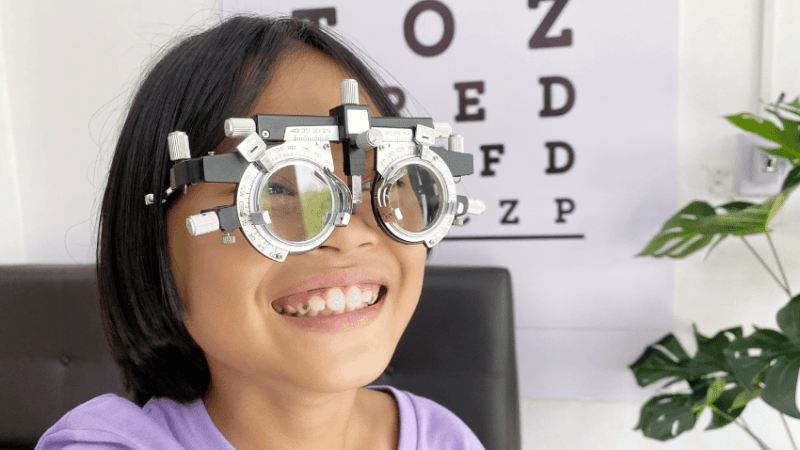How to engage pupils With Oppositional Defiant Disorder

Fintan O’Regan outlines how schools should look to navigate the challenges presented by pupils with oppositional defiant disorder…

Oppositional defiant disorder is a term that divides opinion because many don’t consider it to be a ‘real’ condition – yet that the traits it refers to are very real indeed.
Children and young people with ODD argue with adults. They refuse and defy. They can be angry and defensive, spiteful and vindictive.
All children will likely exhibit these traits at some point – indeed, we can all have bad days, however old we are – but it’s the intensity with which these traits present themselves that might lead to an individual receiving a diagnosis or assessment of ODD.
In my experience, ODD tends to be a secondary outcome of some other underlying need – often features of attention deficit hyperactivity disorder that have yet to be recognised in the child, with the child’s frustration manifesting itself in defiance.
Where ODD overlaps with ADHD, it’s worth noting that the latter is a condition centred on impulsivity, and that you’ll therefore be dealing with behaviour that’s not premeditated. Generally speaking, if the child does something wrong against someone, they’ll feel empathy afterwards.
At the opposite end of the scale from ADHD is conduct disorder. The related actions and behaviours of children with conduct disorder will be very much premeditated – they know what they’re doing and yet do it anyway, and they won’t tend to demonstrate much in the way of empathy.
ODD sits somewhere between the two. Children with ODD get easily frustrated. They’ll flare up, become very angry and upset, and often quite emotional. When they later calm down, it’s relatively common for them to cry and show remorse and empathy for those who may have been affected by their behaviour.
A different level
To satisfy a specific ODD criteria, it’s generally the case that intense and persistent behaviours of the type described above would need to exhibit for at least six months in two or more locations – ie both at school and at home, and potentially elsewhere.
Ultimately, there’s no biological or physical test for ODD. Whether a child has it or not will depend on the conclusion of observations made over time.
There’s perhaps a comparison to be made with depression, which is similarly a condition for which there’s no blood test. We all get sad from time to time.
But when that sadness becomes intense to the degree that it starts to impair our functioning, or our ability to maintain relationships – that’s the point at which our ‘sadness’ moves up a level to become something else.
Children with ODD like arguing. They’re good it. And under these circumstances, conventional methods of managing such behaviours simply won’t work.
Behavioural nudges
Teachers should navigate this not by controlling the child, but by controlling the mood and climate of the child’s immediate environment. If that environment is structured, and yet open enough for the child to question certain situations and decisions, that can be helpful for them.
If, however, the environment is very rigidly controlled, and subject to the will of someone who may themselves be somewhat egotistical, then the child’s symptoms are more likely to manifest in a negative way.
The supervising adult in this scenario shouldn’t simply tell the child what to do, but neither should they try to negotiate with them. What they should do is try nudging the child into making better decisions for themselves, since the mood of the child is central to being able to de-escalate the situation.
In the classroom, you may also need to watch out for the moods of other children. Every class will likely include kids who’ll try and provoke the child into flaring up, because it’s entertaining.
To that end, this managing of mood over behaviour can be extended beyond children fitting the ODD criteria to the rest of the class.
Consistent, yet flexible
In every classroom there will always be a set of red lines, and some other areas where the rules can be a little more flexible. Non-negotiables will typically include health and safety considerations, bans on phones and chewing or similar.
Trending
These are commonplace and will be required of all children, whether they present with ODD or otherwise.
Flexibility can be helpful when children become frustrated or exhibit a negative mood – perhaps because they’ve arrived at school without their usual equipment. You need to be able to demonstrate that flexibility, because fairness doesn’t mean treating every child the same; it means giving every child what they need.
Schools can occasionally find this need to be consistent, yet flexible somewhat contradictory. Yes, it’s possible for the lines to become blurred at times – but so long as some non-negotiables remain in place, it’s an arrangement that everyone in the class will likely be happier with.
Don’t take it personally
Some people have a natural ability to de-escalate individuals when they become anxious or frustrated, while others may need some additional advice in how to read such situations.
The latter group may be able to call on certain communication tools, such as saying ‘I need you to do this,’ in place of ‘Will you do this?’ ‘Can you do that?’ or ‘You should do this.’
Staff training in de-escalation strategies can be hugely beneficial. I’ve previously seen staff needing some assistance in how to use their body language when addressing people who are anxious – fingers shouldn’t be wagging, hands should be down by their sides.
A final point to note is that children with ODD will often make things personal. If staff appear to take what a child says personally, that can infuse the child and exacerbate the situation.
By the same token, a child might take what you say to them personally, and resist the message you’re trying to communicate – and yet willingly take that same message from one of your colleagues.
The proverb ‘It takes a village to raise a child’ certainly applies here. Ultimately, it’s about not being an island.
Four strategies
My own advice for adults supervising children who have ODD would be this:
1. Manage moods
Focus your actions on changing the child’s mood, not their behaviour, and consider any de-escalation and diversion strategies within that context.
2. It takes two to argue
If there’s one person trying to argue, that’s not an argument. Jousting with children who have ODD is therefore not recommended, particularly in front of their peers. It will often be those peers that the child is playing to, and the child will be far more interested in what they think than what you think.
3. Let go of your ego
Addressing the child with a big ‘I am…’ and following up with ‘You should…’ is a red rag to a bull, and an approach that simply won’t work for children with ODD traits. All it will do is send them into a higher level of anxiety.
4. Refer the child down, not up
If things progress to that point despite your best efforts, don’t refer them to a more senior member of staff within the school hierarchy. Far from reducing the intensity of their behaviours, this will actually heighten them.
Instead, send the child to someone lower in the hierarchy who will be better placed to get their mood down. When you pick things up with the child later on, it’s you that will then be representing that more senior level.
Fintan O’Regan is an associate lecturer at Leicester University.











